Haas premiere highlights Third Coast Percussion’s UC concert
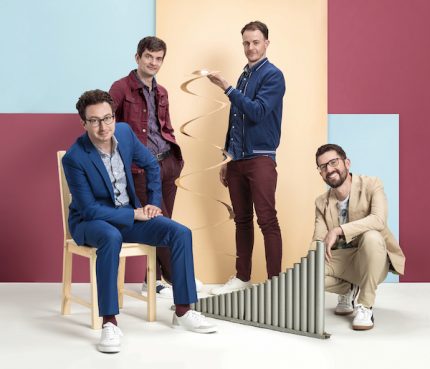
“We made it to season two!” Thus University of Chicago music and humanities professor Seth Brodsky began his introductory remarks before Saturday night’s concert at the Logan Center.
The concert was the second in UChicago Presents’ opening weekend, and a production of the Chicago Center for Contemporary Composition (CCCC), a “dynamic, collaborative, interdisciplinary environment” founded at U of C last year by composer and teacher Augusta Read Thomas, with an advisory board that includes Brodsky. In his prefatory comments, Brodsky drew attention to the reality that new music is a perennially hard sell, and not necessarily just at the box office. He went on to comment appreciatively on the ample audience assembled at Logan for that night’s performance: “All future concerts will be Third Coast,” he joked.
Having a Grammy-winning local headliner like Third Coast Percussion (TCP) can certainly help fill the seats for new music. The quartet of young men has become one of the most prominent such ensembles and has an international stature, though member Robert Dillon commented that it is nice for them to return to their hometown audience and namesake “Third Coast.” The ensemble offered the type of consistently thoughtful, dynamic performances that have earned them their reputation.
The concert began with BEND from 2016 by TCP member Peter Martin. The work is scored for four players at two marimbas, who throughout utilize both the heads and sticks of mallets, along with bows, to produce a variety of timbres. Bruce Goff’s player piano compositions were the inspiration for the piece, which aimed to render the piano rolls’ patterns in musical gestures. BEND felt remarkably dancelike in the four players’ hands, with a buoyant, circling quality, evocative of its inspiration. An interlude for bowed marimbas produced all variety of avian chirps and whistles, before the work wound to its conclusion.
Alexandre Lunsqui’s Shi (2008) followed, and was the one work on the program not written for TCP. “Shi” is a Chinese word meaning “food” or “to eat,” and the work calls for three players set up at tables to play with chopsticks throughout, striking woodblocks and cowbells, along with culinary items like Chinese grills, glass bottles, and bamboo mats. The work is both whimsical and virtuosic—an overhead view of the three players was projected on the screen, which highlighted their quicksilver transitions among the assembled items. Most compelling here was how the TCP players created musical lines out of the pitchless instruments, conveying contour and texture from unexpected sonic material.
Next was Ayanna Woods’ 2018 work Triple Point, the result of TCP’s Emerging Composers Partnership program, in which the quartet works closely with two burgeoning composers each year to craft a piece collaboratively. A triple point is the temperature and pressure at which a substance can exist as a solid, liquid, or gas, which while in a sense balanced, actually results in rapid changes among states. Woods conveyed these with a plurality of instruments, including David Skidmore on drum set. The compact work had a darkly jazzy feel throughout, ably conveying a sense of edgy stasis. Woods was on hand to receive her deserved applause.
The first half closed with the first of two world premieres on the program: Kodama by Chicago Ph.D. candidate Rodrigo Bussad. Kodama are Japanese nature spirits but also sounds that reverberate in nature. Bussad worked with TCP on the piece, and was drawn to their personal assortment of metallic instruments; these were assembled on a single table for the four players to create a kind of new instrument for Bussad to explore. The work begins with a limpid melody before giving itself over to shimmering textures, creating a sense of supernatural tintinnabulation. A quirky balletic section ensues before the opening melody returns at the end, ultimately concluding with a punctuation mark. Bussad joined his colleagues on stage to be recognized for this inventive work.
The second half of the concert was devoted to a single item: the world premiere of Austrian composer Georg Haas’ Iguazú superior, antes de descender por la Garganta del Diablo (“Upper Iguazú, before descending through the devil’s throat”), a commission of the Serge Koussevitzky Music Foundation and the Library of Congress. The work is inspired by Iguazú Falls, which lies on the Brazil-Argentina border, and is one of the world’s largest waterfall systems. The rivers that feed into it actually gain speed until ultimately shooting through “The Devil’s Throat,” a narrow passage that is higher than Niagara Falls.
Haas channels this inspiration in his 30-minute work by structuring it as essentially one long accelerando. While this is not immediately apparent, the underlying base tempo does indeed increase for the work’s duration. There is an omnipresent driving pulse among the four percussionists, who are arranged in a semicircle around the stage, each with his own station of instruments.
While it is difficult to do justice to such a complex work on a single hearing, the overall impression was hypnotic, of getting swept along in a current. The general absence of harmony and pitches for such a long duration immerses listeners in a new language of pure timbre and gesture, which one comes to understand over the course of the work. It comes to an ear-splitting climax, presumably the rush into “The Devil’s Throat,” before subsiding into the nervy woodblock tremolos with which it begins. Haas was present to receive a standing ovation along with the gentlemen of TCP.
The next CCCC concert takes place 7:30 p.m. Thursday October 24 at the Logan Center’s Performance Penthouse, and features the string trio HEAR in NOW. arts.uchicago.edu/chicago-center-contemporary-composition
Posted in Performances

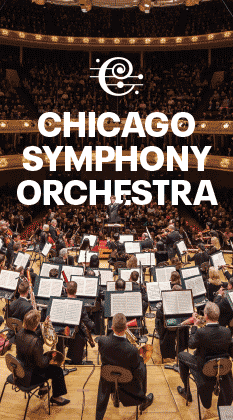
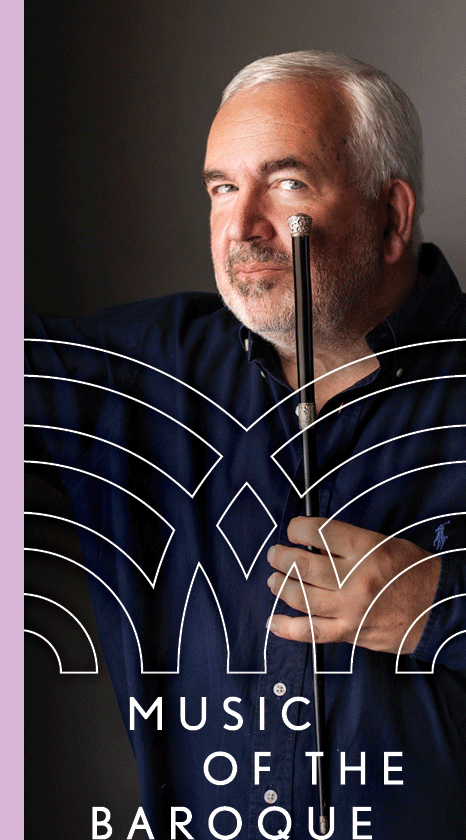
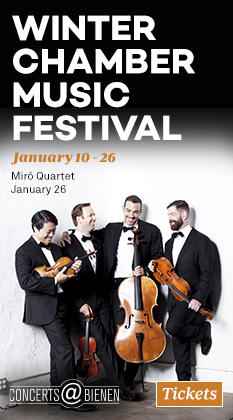
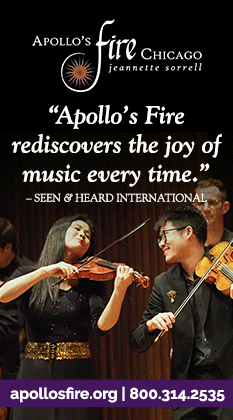
Posted Oct 14, 2019 at 3:41 pm by Rebecca Gray Smith
Rodrigo, congratulations !!!! Your work is wonderful!! Best regards, Rebecca